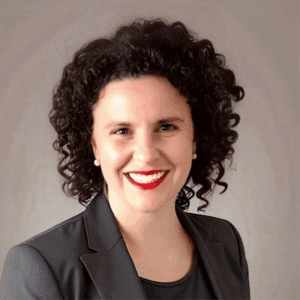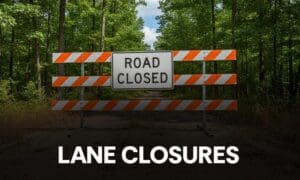The use of at-large voting to elect Fayette County commissioners remains the preference of the new county commission, according to interviews conducted by The Citizen this week.
However, the commissioners have recognized that some citizens, particularly African-Americans, have felt unrepresented in the past and thus the new commission is “reaching out” to them in an effort to be more inclusive. That effort has meant attending gatherings offered by the local Democratic Party as well as neighborhood association meetings in north Fayette County, among others.
The three new commissioners sworn in this month inherited a pending lawsuit filed by the National Association for the Advancement of Colored People that seeks to force district voting for seats on the county commission and the board of education. The federal complaint contends that district voting would allow for a minority to be elected to office by creating a special district with a majority of minority voters.
With the current at-large voting system, voters may cast a ballot on all five seats for the commission and board of education. Under district voting, voters would only be allowed to cast a ballot for one seat on each board: the one that corresponds with the geographical district in which they live.
The new commissioners: Charles Oddo, Randy Ognio and David Barlow joined fellow commissioner Allen McCarty in saying they felt it is more appropriate for each commissioner to be responsible to every voter in the county via at-large voting instead of just one-fifth of the county as would occur under district voting. Commission chairman Steve Brown said he also favors the use of at-large voting.
Oddo said he hasn’t been able to discern any racial discrimination taking place in county business, and he is wary of restricting voters to deciding only one of the five commission seats.
“My feeling is that I want to continue as we are doing to give everybody a voice,” Oddo said. “I don’t want to restrict anybody’s voice and I think the current setup provides that.”
Oddo said he worried that district voting could create infighting among commissioners “trying to divide a pot of money that’s now so small we’re really scraping off the bottom of the barrel, and we need to do what’s best for everybody.”
Oddo said he looks at himself as a representative for all Fayette County residents, not just a particular group.
“Truthfully, I hope folks would look at me as their representative no matter where they live in Fayette County, and feel they can call on me no matter where they live in the county,” Oddo said.
District voting would also make it impossible for voters to cast a ballot “against” certain candidates unless that candidate is running in the voter’s district, Oddo added.
“The way it’s set up now gives everybody an opportunity to say who they like and who they don’t like,” Oddo said.
Barlow, who has previously come out in favor of keeping at-large voting and has taken heat for it, noted that currently under at-large voting the commissioners “represent the whole county.”
It would be difficult to parcel out the various emergency services and other services provided by the county among five different districts under district voting, Barlow added.
New commissioner Randy Ognio also prefers to keep the current at-large voting plan.
“I still can’t figure out what part of the Pledge of Allegiance says ‘divided,’” Ognio said. “It says ‘United.’ That’s where I stand on it.”
Brown, who has previously supported district voting in the past and was previously a member of the NAACP, did not elaborate with any depth on his preference to keep at-large voting, but pointed to the commission’s effort to be more inclusive of citizens. Brown specifically referenced a pledge the commission authorized with a promise to treat citizens with respect.
That, Brown said, extends to admitting mistakes too, as the commission did last week when it was noted that a county employee failed to invite the two alternate ethics board members to a recent ethics board meeting. Brown apologized for the oversight at last week’s commission meeting.
In the meantime, Oddo said he is on the lookout to make sure nothing is being done to “prohibit anybody from progressing in Fayette County.”
“We have our own set of problems we are facing and trying to overcome, and I’d like to be sure all citizens are included in the outcome,” Oddo said.
The district voting lawsuit has been on hold the past several months as one of the county’s lawyers in the case has been on an extended medical leave. The NAACP in November criticized the county commission for spending more than $220,000 in defending the lawsuit. The board of education at first attempted to settle the lawsuit, but the county subsequently objected because the commission had not signed off on that settlement though it was listed as a co-defendant in the case along with the board of education.











Leave a Comment
You must be logged in to post a comment.